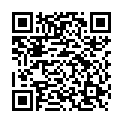|
|
|
| Module code: FTM-BIO |
|
|
2V (2 hours per week) |
|
3 |
| Semester: 1 |
| Mandatory course: no |
Language of instruction:
German |
Assessment:
Written exam, term paper
[updated 25.05.2021]
|
FTM-BIO (P242-0101) Automotive Engineering, Master, ASPO 01.04.2021
, semester 1, optional course
FTM-BIO (P242-0101) Automotive Engineering, Master, ASPO 01.04.2023
, semester 1, optional course
|
30 class hours (= 22.5 clock hours) over a 15-week period.
The total student study time is 90 hours (equivalent to 3 ECTS credits).
There are therefore 67.5 hours available for class preparation and follow-up work and exam preparation.
|
Recommended prerequisites (modules):
None.
|
Recommended as prerequisite for:
|
Module coordinator:
Prof. Dr.-Ing. Hans-Joachim Weber |
Lecturer:
Prof. Dr.-Ing. Hans-Joachim Weber
[updated 20.04.2021]
|
Learning outcomes:
After successfully completing this module, students will have an overview of what bionics can do. They will be able to identify analogies between nature and technology and learn ways to implement and apply them in simple cases. Students will be familiar with the possibilities of bionic design optimization and will be able to apply them to simple cases.
[updated 25.05.2021]
|
Module content:
Insight into bionics, history of bionics
Construction bionics: Materials, composites, bonding, targeted adhesion and release, locomotion (walking, robotics, in water and air), nanobionics, process bionics, information bionics.
Organizational bionics, evolutionary bionics
Design optimization
The search for bionic solutions
[updated 25.05.2021]
|
Recommended or required reading:
W. Nachtigall - Das große Buch der Bionik;
Mattheck - Die Körpersprache der Bauteile;
J. Zrzavř, D. Storch S., Mihulka - Evolution
[updated 25.05.2021]
|

